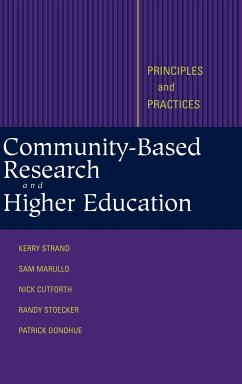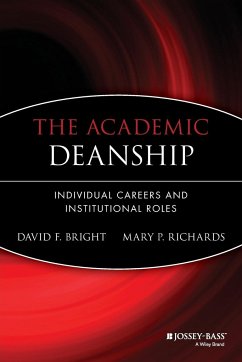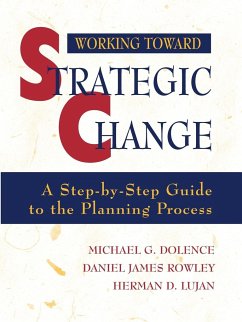
Rethinking Undergraduate Business Education
Versandkostenfrei!
Versandfertig in über 4 Wochen
44,99 €
inkl. MwSt.
Weitere Ausgaben:

PAYBACK Punkte
22 °P sammeln!
Business is the largest undergraduate major in the United States and still growing. This reality, along with the immense power of the business sector and its significance for national and global well-being, makes quality education critical not only for the students themselves but also for the public good. Business education for undergraduates, however, is too often narrow, failing to challenge students to question assumptions, think creatively, or understand the place of business in larger institutional contexts. These are the results of The Carnegie Foundation for the Advancement of Teaching'...
Business is the largest undergraduate major in the United States and still growing. This reality, along with the immense power of the business sector and its significance for national and global well-being, makes quality education critical not only for the students themselves but also for the public good. Business education for undergraduates, however, is too often narrow, failing to challenge students to question assumptions, think creatively, or understand the place of business in larger institutional contexts. These are the results of The Carnegie Foundation for the Advancement of Teaching's national study of undergraduate business education. Rethinking Undergraduate Business Education examines these limitations and describes the efforts of a diverse set of institutions to address them by integrating the best elements of liberal arts learning with business curriculum to help students develop wise, ethically grounded professional judgment. The book powefully articulates the nature of liberal learning, the purpose of which is to enable students to make sense of the world and their places in it, preparing them to use knowledge and skills to engage responsibly with the life of their times. The authors provide compelling examples of effective pedagogies and curricular designs that promote this essential learning for business students, along with campus cultures that support it. They also offer insights about educating for innovation and entrepreneurial thinking and for competence in navigating a global business environment. The lessons of the volume are directly applicable to undergraduate fields such as engineering, nursing, and education, as well as business. The recommendations of this study point the way toward undergraduate business education that helps students move beyond narrow technical expertise to creativity, professional judgment, and enhanced social contribution and personal fulfillment in their work and their lives.














